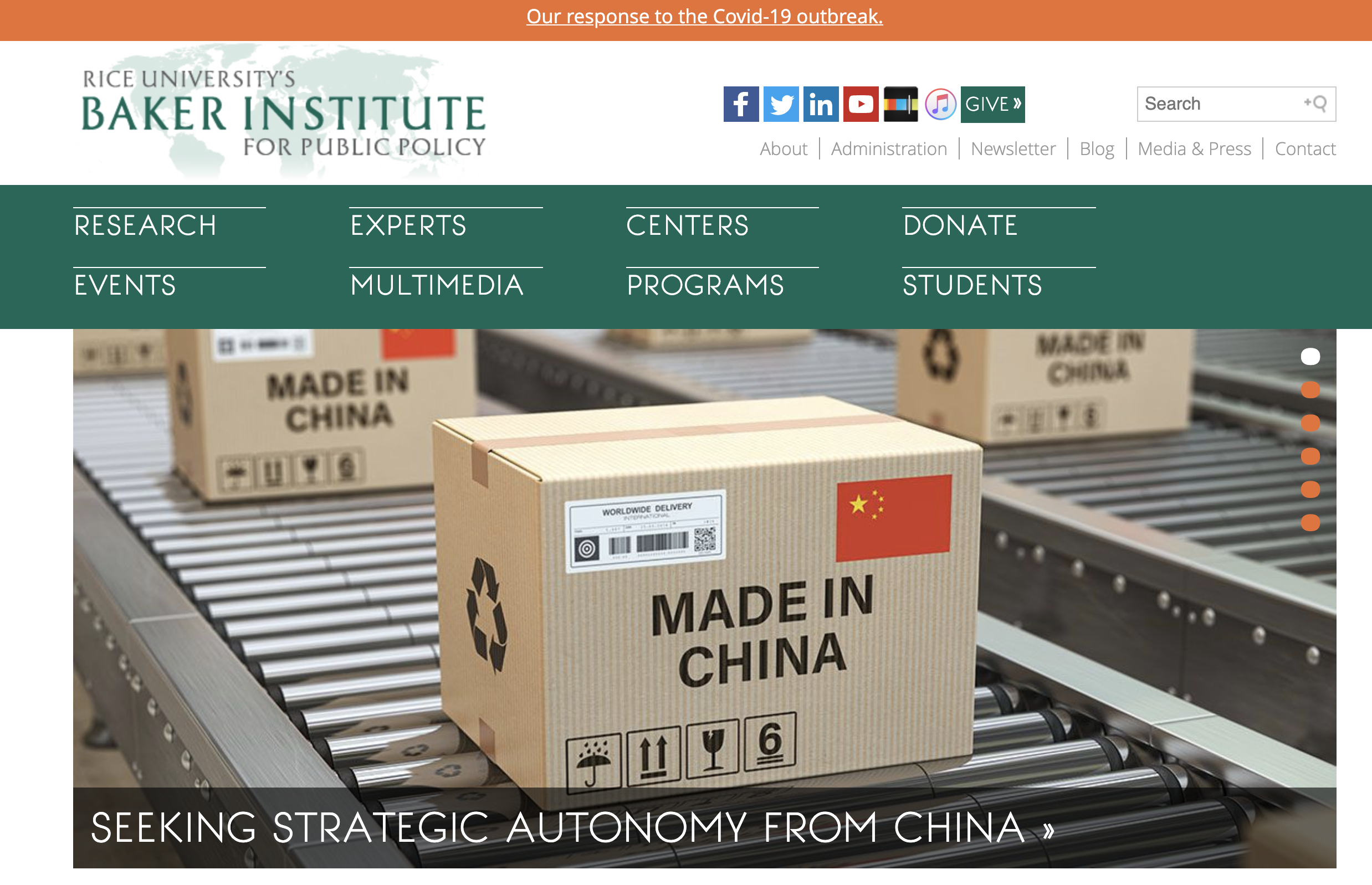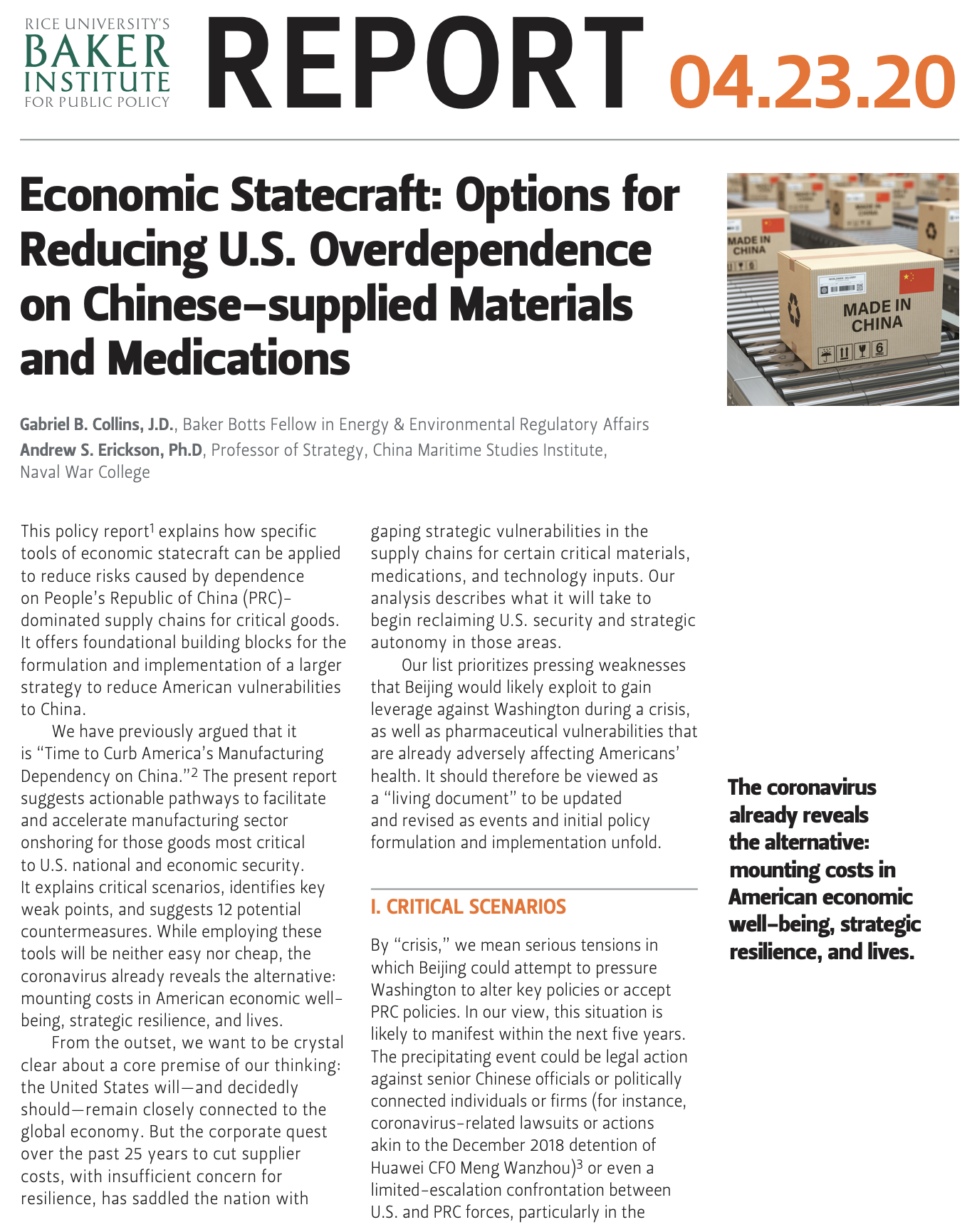Economic Statecraft: Options for Reducing U.S. Overdependence on Chinese-supplied Materials and Medications
Gabriel B. Collins and Andrew S. Erickson, Economic Statecraft: Options for Reducing U.S. Overdependence on Chinese-supplied Materials and Medications (Houston, TX: Baker Institute for Public Policy, Rice University, 23 April 2020).
This policy report explains how specific tools of economic statecraft can be applied to reduce risks caused by dependence on People’s Republic of China-dominated supply chains for critical goods. It offers foundational building blocks for the formulation and implementation of a larger strategy to reduce American vulnerabilities to China.
- We have previously argued that it is “Time to Curb America’s Manufacturing Dependency on China.”
- The present report suggests actionable pathways to facilitate and accelerate manufacturing sector onshoring for those goods most critical to U.S. national and economic security.
- It explains critical scenarios, identifies key weak points, and suggests 12 potential countermeasures.
- While employing these tools will be neither easy nor cheap, the coronavirus already reveals the alternative: mounting costs in American economic wellbeing, strategic resilience, and lives.
From the outset, we want to be crystal clear about a core premise of our thinking: the United States will—and decidedly should—remain closely connected to the global economy. But the corporate quest over the past 25 years to cut supplier costs, with insufficient concern for resilience, has saddled the nation with gaping strategic vulnerabilities in the supply chains for certain critical materials, medications, and technology inputs. Our analysis describes what it will take to begin reclaiming U.S. security and strategic autonomy in those areas.
Our list prioritizes pressing weaknesses that Beijing would likely exploit to gain leverage against Washington during a crisis, as well as pharmaceutical vulnerabilities that are already adversely affecting Americans’ health. It should therefore be viewed as a “living document” to be updated and revised as events and initial policy formulation and implementation unfold. … …
Gabriel B. Collins, J.D., Baker Botts Fellow in Energy & Environmental Regulatory Affairs
Andrew S. Erickson, Ph.D, Professor of Strategy, China Maritime Studies Institute, Naval War College







































